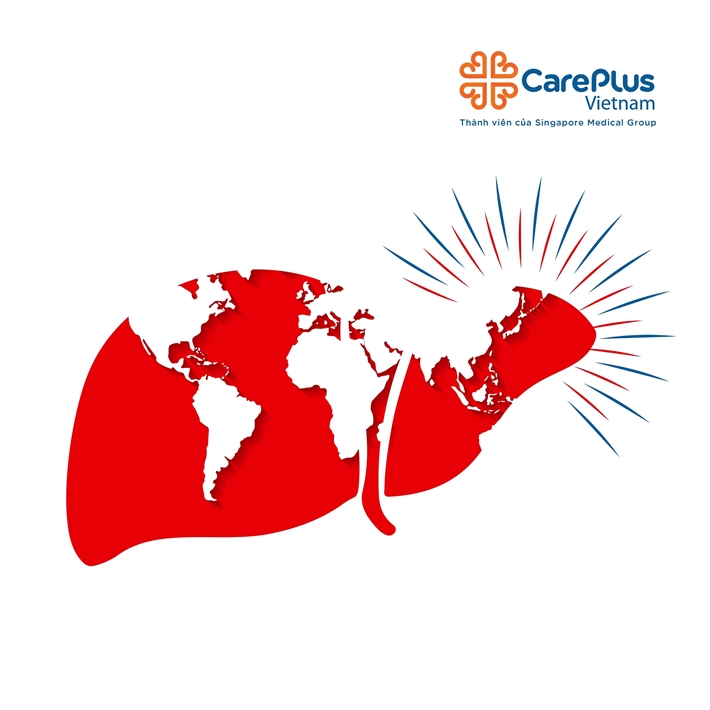What You Should Know About Viral Hepatitis

1/17/2018 9:31:27 AM
WHAT IS HEPATITIS?
“Hepatitis” means inflammation of the liver. The liver is a vital organ that processes nutrients, filters the blood, and fights infections. When the liver is inflamed or damaged, its function can be affected. Heavy alcohol use, toxins, some medications, and certain medical conditions can cause Hepatitis. However, Hepatitis is most often caused by a virus. In Vietnam, the most common types of Viral Hepatitis are Hepatitis A, Hepatitis B, and Hepatitis C.
KEY FACTS IN VIETNAM
Hepatitis B
- About 8.6 million infections, with estimated 8.8% of females and 12.3% of males living with chronic Hepatitis B
- 1 in 10 Vietnamese adults has Hepatitis B.
- About 2 in 3 people with Hepatitis B do not know they are infected.
Hepatitis C
- As high as 97% of drug users have Hepatitis C.
- 1 in 2 male drug users has Hepatitis C.
- About 50% of people with Hepatitis C do not know they are infected.
SYMPTOMS
Many people with hepatitis do not have symptoms and do not know they are infected. If symptoms occur with an acute infection, they can appear anytime from 2 weeks to 6 months after exposure. Symptoms of chronic viral hepatitis can take decades to develop.
Symptoms of hepatitis can include: fever, fatigue, loss of appetite, nausea, vomiting, abdominal pain, dark urine, grey-colored stools, joint pain, and jaundice.
The only way to know for sure if you have Hepatitis is to get tested.
Hepatitis A
- Symptoms often occur after 2-3 weeks.
Hepatitis B
- Symptoms often occur after 2.5 months.
Hepatitis C
- Symptoms often occur after 2-6 months, but 80% of patients do not have symptoms.
PROGRESSION
Hepatitis A
- Hepatitis A can last from a few weeks to several months.
- Most recover with no lasting liver damage.
- Although very rare, death can occur.
Hepatitis B
- Hepatitis B can range from a mild illness, lasting a few weeks, to a serious life-long or chronic condition.
- The risk for chronic infection depends on age when infected. More than 90% of unimmunised infants who get infected develop a chronic infection occurs, whereas 6%–10% of older children and adults who get infected develop chronic Hepatitis B.
- 15%–25% of chronically infected people develop chronic liver disease, including cirrhosis, liver failure, or liver cancer.
Hepatitis C
- Hepatitis C can range from a mild illness, lasting a few weeks, to a serious life-long infection. Most people who get infected develop chronic Hepatitis C.
- Hepatitis C is a leading cause of liver transplants and liver cancer.
- 75%-85% of people who get infected with the Hepatitis C virus develop a chronic infection.
- 5%-20% of people with chronic Hepatitis C develop cirrhosis.
- 1%–5% will die from cirrhosis or liver cancer.
HOW IS IT SPREAD?
Hepatitis A
- Hepatitis A is spread when a person ingests fecal matter - even in microscopic amounts - from contact with objects, food, or drinks contaminated by feces or stool from an infected person.
Hepatitis B
Hepatitis B is primarily spread when blood, semen, or certain other body fluids from a person infected with the Hepatitis B virus - even in microscopic amounts - enters the body of someone who is not infected.
The Hepatitis B virus can also be transmitted from:
- Birth to an infected mother
- Sex with an infected person
- Sharing equipment that has been contaminated with blood from an infected person, such as needles, syringes, and even medical equipment, such as glucose monitors
- Sharing personal items such as toothbrushes or razors
- Poor infection control has resulted in outbreaks in health care facilities
Hepatitis C
Hepatitis C is spread when blood from a person infected with the Hepatitis C virus - even in microscopic amounts - enters the body of someone who is not infected.
This can happen through multiple ways including:
- Birth to an infected mother
- Sharing equipment that has been contaminated with blood from an infected person, such as needles and syringes
- Poor infection control has resulted in outbreaks in health care facilities
WHO SHOULD BE VACCINATED?
Hepatitis A
- All children at age 1
- Travelers to regions where Hepatitis A is common
- Family and caregivers of recent adoptees from countries where Hepatitis A is common
- Men who have sex with men
- Users of certain recreation drugs, whether injected or not
- People with certain medical conditions including chronic liver disease, clotting-factor disorders
Hepatitis B
- All infants at birth
- Unvaccinated adults with diabetes
- Uninfected household members and sexual partners with Hepatitis B
- Persons with multiple sex partners
- Persons seeking evaluation or treatment for an STD
- Men who have sex with men
- People who inject drugs
- People with certain medical conditions, including HIV, chronic liver disease
- Travelers to regions where Hepatitis B is common
Hepatitis C
- There is no vaccine available for Hepatitis C.
TREATMENT
Hepatitis A
- Supportive treatment for symptoms
Hepatitis B
- Acute: No medication available; best addressed through supportive care
- Chronic: Regular monitoring for signs of liver disease progression; some patients are treated with antiviral drugs
Hepatitis C
- Acute: Antivirals and supportive care
- Chronic: Regular monitoring for signs of liver disease progression; Some patients are treated with antiviral drugs including new medications that can cure Hepatitis C and offer shorter length of treatment and increased effectiveness.